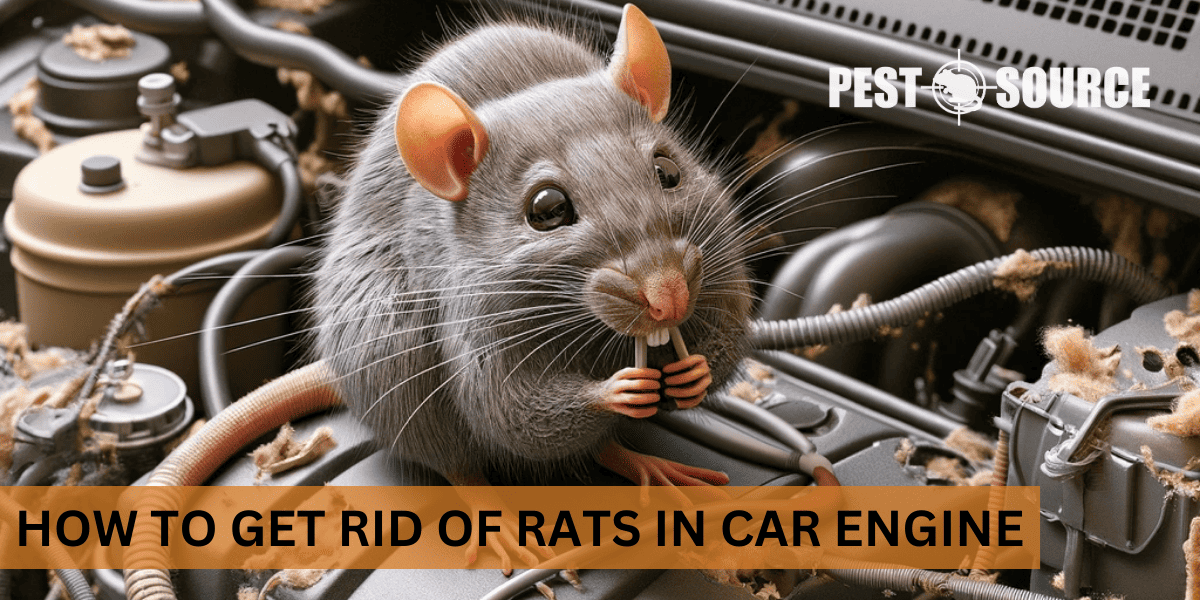Getting rid of rats in a car engine involves a combination of deterrents, cleanliness, and sometimes trapping. This post will guide you through practical steps to eliminate and prevent rat infestations in your vehicle, covering methods from natural repellents to mechanical traps. Keeping rats out of your car engine is crucial not only for your vehicle’s functionality but also for your health and safety.
POINTS
- Use safety gear like gloves and a mask when removing rats or their nests from the engine to prevent disease transmission.
- Employ a combination of traps, natural repellents, and deterrent devices to remove and prevent rats from entering the car engine.
- Regularly clean and inspect the engine compartment to identify and address rodent activity early on.
- Natural repellents such as peppermint oil, predator urine, and cayenne pepper can be effective in keeping rats away from the car engine.
- Seal potential entry points and consider professional pest control services for severe infestations or tailored prevention strategies.
Rats in Car Engine Solution
Rats nesting in car engines can cause extensive damage. To remove these pests safely and efficiently, follow these methods:
Immediate Removal Techniques
Safety First
Before attempting to remove rats, ensure your safety. Wear gloves and a mask to prevent disease transmission.
Traps
Set snap traps or live traps around the engine area. Bait them with peanut butter or cheese, and check them regularly.
Engine Start
Occasionally, starting the engine for a short period may scare the rats away. However, this should be done with caution to avoid harming the animals or damaging the car.
Professional Help
If the infestation is severe, contact a professional pest control service. They can remove the rats safely and humanely.
Humane Removal Options
Consider live traps, which allow you to catch and release the rats without harming them. Ensure you release them far from residential areas to prevent their return.
How to Keep Rats Out of Car Engine?
Preventing rats from entering your car engine requires a combination of cleanliness, natural repellents, and deterrent devices.
Cleanliness
Rats are attracted to food and shelter. Keep your parking area clean and free of food scraps or litter.
Natural Repellents
Use natural repellents like peppermint oil, cayenne pepper, or mothballs. Place them in and around the engine compartment to deter rats.
Deterrent Devices
Install ultrasonic repellent devices or mesh wire around the car to prevent rats from entering the engine bay.
Maintaining a rat-free engine bay is crucial for your vehicle’s longevity and performance. Combining immediate removal techniques with long-term strategies will ensure your car remains rodent-free.
Rat Nest in Car Engine: What to Do?
Step-by-Step Removal
- Personal Protection: Before handling the nest, wear gloves and a mask.
- Remove the Nest: Carefully extract the nest material from the engine compartment.
- Clean the Area: Use a mixture of soap and water to clean any droppings or remnants.
- Disinfect: Apply a disinfectant to the area to kill any lingering bacteria or viruses.
Assess and Repair Damage
Inspect all wiring and components for gnaw marks and other damage. Consult a mechanic for necessary repairs to prevent malfunctions or safety issues.
Cleaning Guidelines
After removal and repairs, keep the engine compartment clean. Regular checks will help identify new nests early.
How to Get Rid of Rats in Car Naturally?
Natural Repellents
Getting rid of rats without poison using natural methods is safe for both humans and the environment.
- Peppermint Oil: Soak cotton balls in peppermint oil and place them around the engine.
- Predator Urine: Products mimicking the scent of predator urine can be effective.
- Cayenne Pepper: Sprinkle cayenne around the car’s perimeter to create a barrier.
Application Tips
Apply these repellents regularly, as their effectiveness can diminish over time, especially in an outdoor environment.



